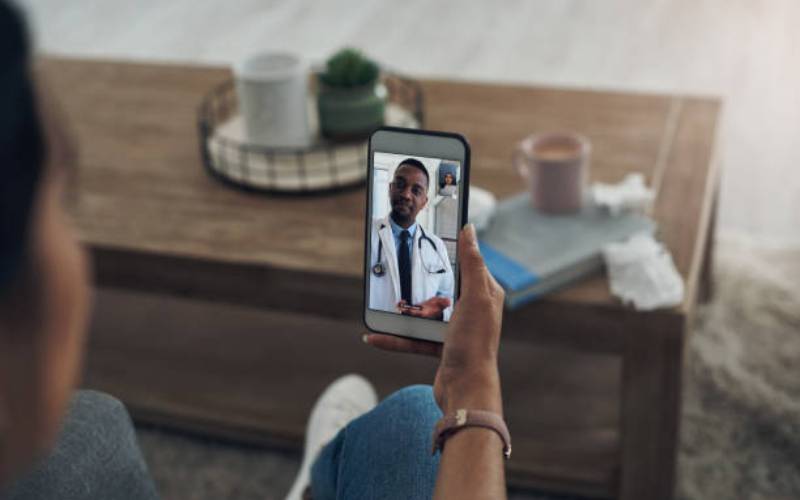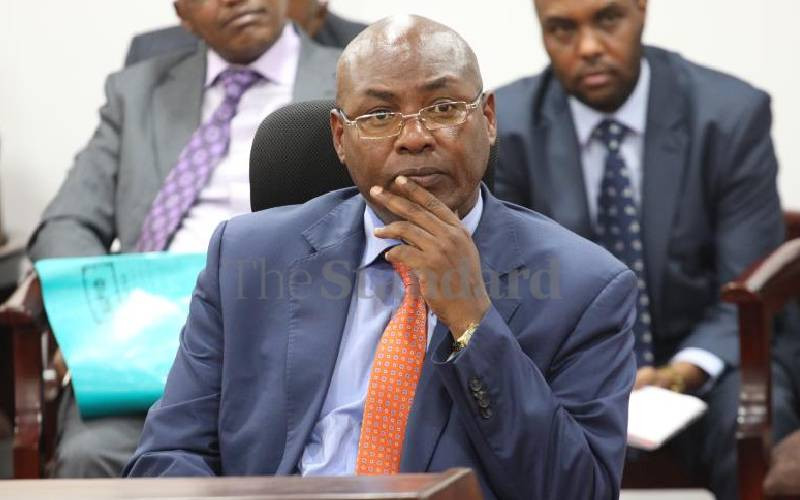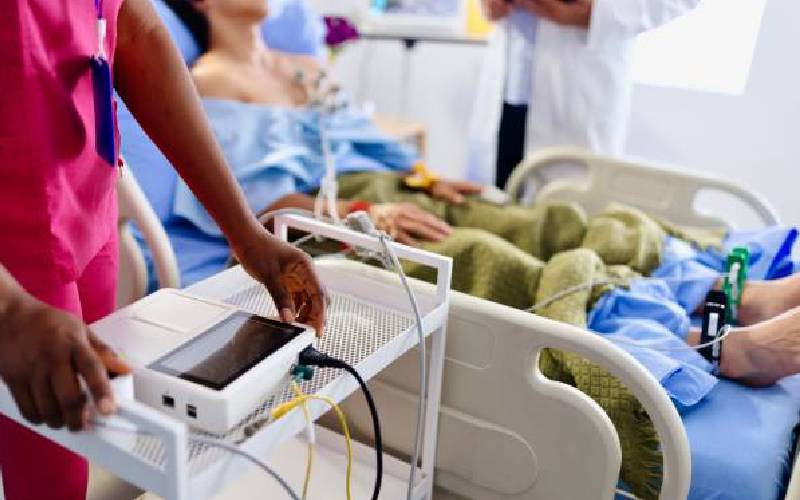
The government will roll out a telemedicine programme to improve access to healthcare, particularly in remote and marginalised regions.
Already, the government through the Communications Authority of Kenya (CA) has set aside Sh600 million for the foundation of telemedicine projects in 20 health facilities.
“This is the direction to go so that no part of the country feels left out in providing quality health services and especially to reduce the cost of seeking healthcare for patients,” said the head of the Health Service Management department at Ministry of Health, Dr Joseph Sitienei.
Piloting of the programme was conducted at the Kenyatta National and Isiolo Hospitals.
The ministry's vision is hinged on the realisation of “a healthy, productive and globally competitive nation.”
However, this is not possible to achieve when some parts of the country lack the requisite medical personnel, especially in rural areas.
The highly skilled health care workers’ distribution in Kenya is skewed towards urban areas leaving rural areas poorly staffed. This disproportionate distribution affects health infrastructure as well.
At the onset of Covid-19, the Kenya Medical Practitioners and Dentists Council (KMPDC) started issuing provisional approvals for various registered and licensed health institutions to offer virtual medical services.
So far, about 20 health facilities have received approvals from KMPDC to offer telemedicine services. Although Kenya currently is yet to enact laws regulating telemedicine, the Council developed e-Health guidelines back in 2019 and shared the same with relevant government authorities for approval and subsequent gazettement.
The rules will offer a base for the full rollout of telemedicine services. The role of technology is becoming more appropriate to address some challenges in the healthcare sector.
“If we cannot provide enough skilled staff in all our health facilities, we can surely take the skilled staff to the rural areas through telemedicine. It is time that we have teleconsultations and tele-referrals. There is no other opportune time than now,” Dr Sitienei said in Nairobi yesterday.
He said the government is committed to adopting technology and improving the quality of care offered to Kenyans and meeting the aspirations of the 2010 Constitution.
“The Ministry of Health has taken innovations and technology in the health sector as one step towards improving healthcare as we roll out Universal Health Coverage,” he said.
He also noted that the collection of quality health data is the backbone of planning and evidence-based decision making. "This is only possible when we adapt and deploy technology in all service delivery points,” he said.
He said the ministry has developed a digital health platform to improve the efficiency and effectiveness of services offered in health facilities while at the same time improving accountability.
The platform will enable real-time collection of patient data and provide platforms for integration with other critical databases. The telemedicine project will be rolled out on this platform.
Counties are being clustered to be provided with remote care by the national referral facilities.
 The Standard Group Plc is a multi-media organization with investments in media platforms spanning newspaper print
operations, television, radio broadcasting, digital and online services. The Standard Group is recognized as a
leading multi-media house in Kenya with a key influence in matters of national and international interest.
The Standard Group Plc is a multi-media organization with investments in media platforms spanning newspaper print
operations, television, radio broadcasting, digital and online services. The Standard Group is recognized as a
leading multi-media house in Kenya with a key influence in matters of national and international interest.











